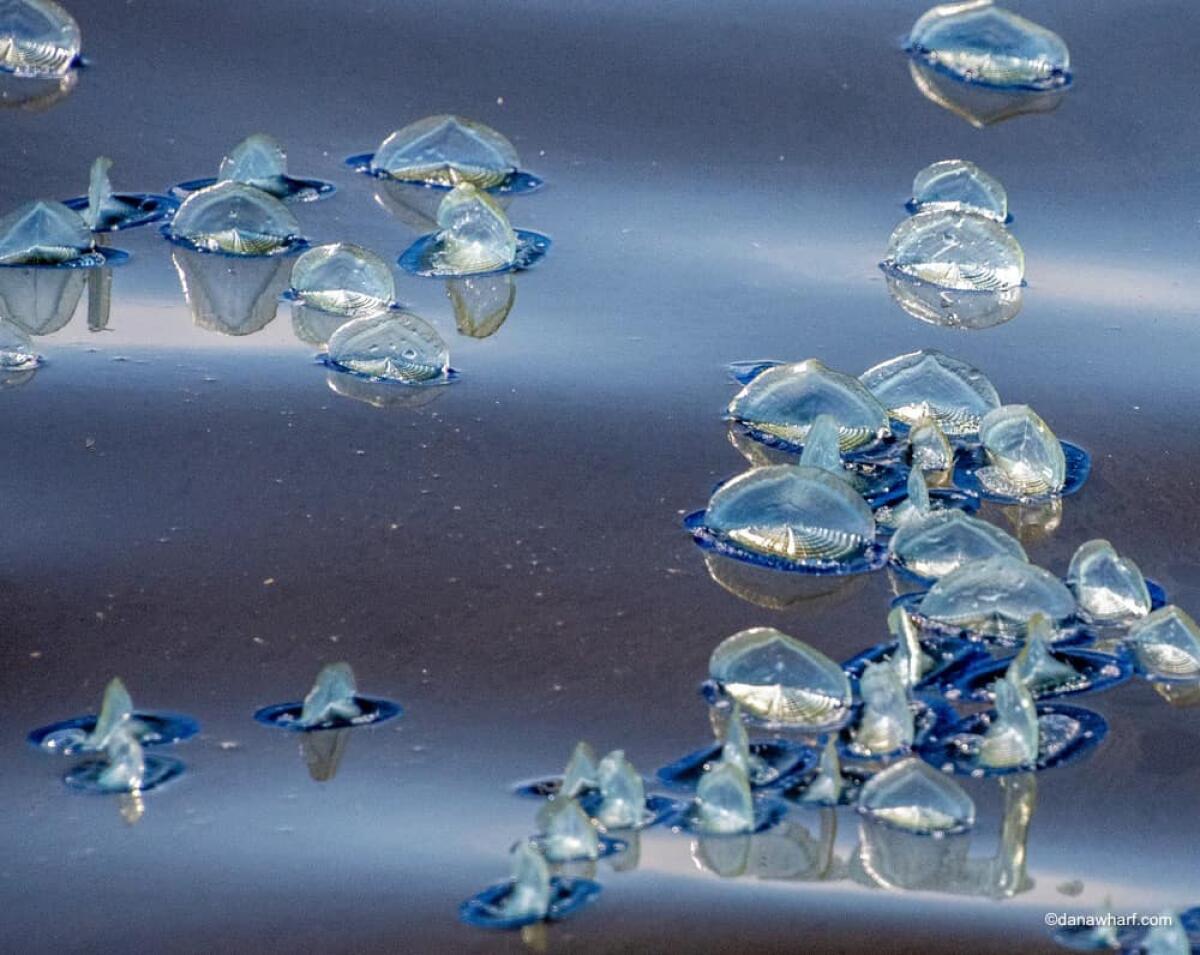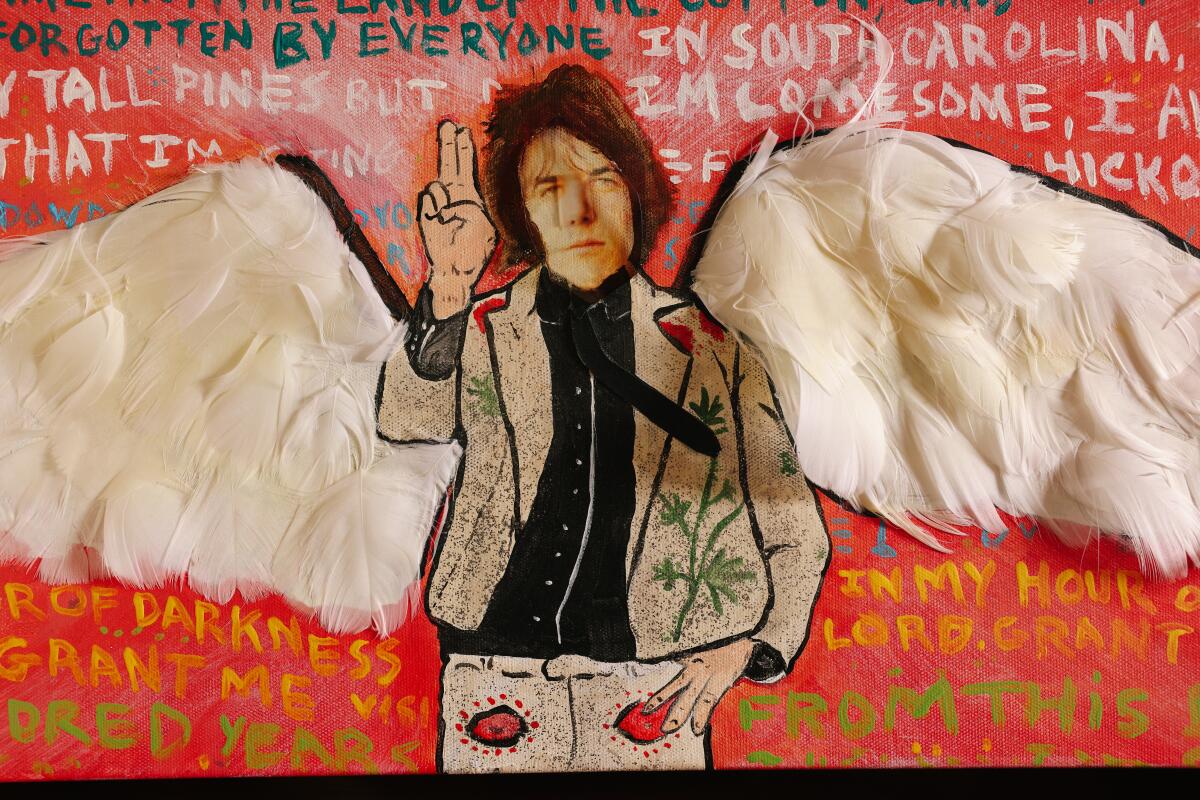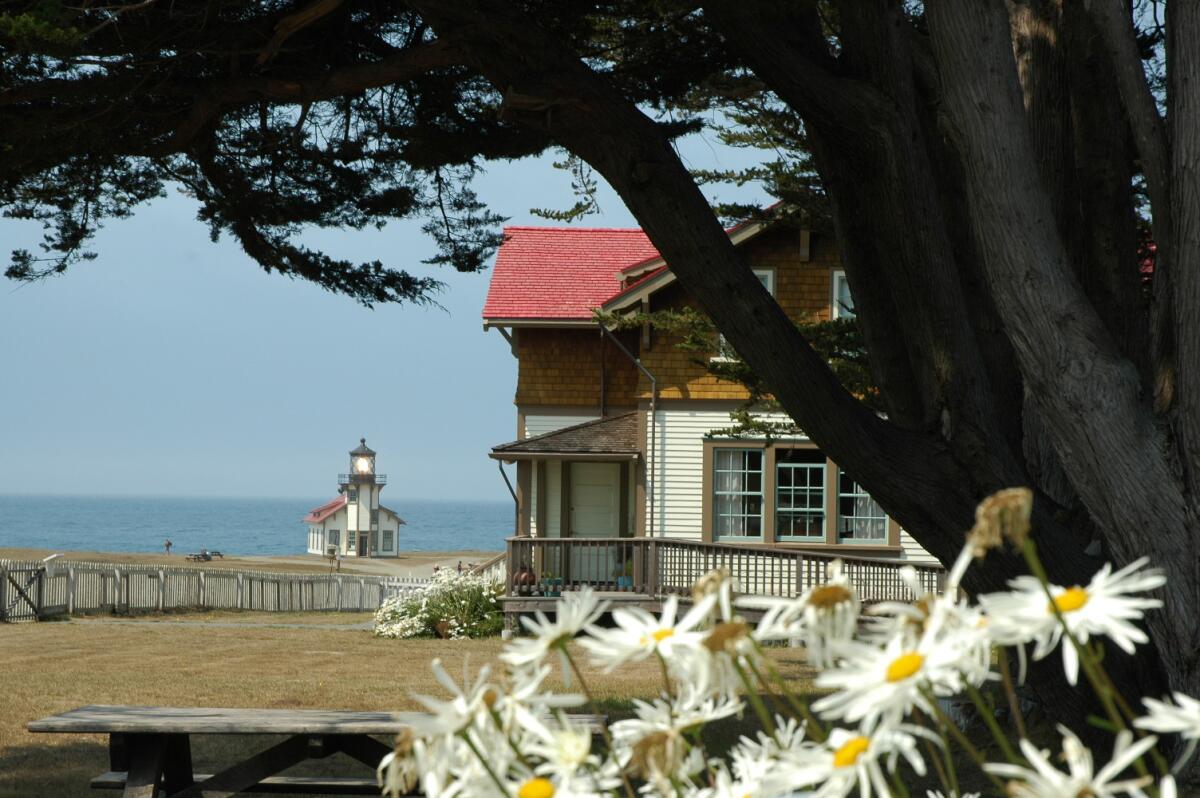This California fortuneteller’s future seemed sealed. Until she broke away

- Share via
Good morning, and welcome to the Essential California newsletter. It’s Tuesday, April 11.
My name is Faith E. Pinho, and I’m a reporter on The Times’ audio team. I am so excited to finally tell you about our new podcast, just released today: “Foretold” follows the life story of Paulina Stevens, a Romani American woman and a fortuneteller.
When Paulina and I first met back in October 2019, her story came spilling out of her. Paulina told me that she was raised in Southern California psychic shops. At 12 years old, she was taken out of school and raised to be a wife, mother and fortuneteller. At 17, she married and moved into her in-laws’ home in Orange County. By 20, Paulina was the mother of two girls. She had followed every step of her predetermined path — until one night, when she decided to break away.
Paulina sneaked out of her psychic shop with her two daughters, leaving behind everything she once knew and turning to the outside world.
“I didn’t feel like anyone around me understood what I was going through,” Paulina said. “Because they didn’t grow up in my community and obviously didn’t have my cultural background.”
Paulina is Romani. I knew almost nothing about Romani cultural identity, but I’d come to learn that California is home to some of the largest Romani communities in the U.S.

Once I started reporting this story, I couldn’t stop seeing tropes about Romani people everywhere. In literature, art and film, Romani people are stereotyped as exotic wanderers, mysterious fortunetellers and swindlers.
“Racism toward Roma is the last acceptable form of racism,” wrote Melanie Covert in her book “American Roma.”
It is largely because of these tropes that Romani people in the U.S. have typically remained hidden from public view. They have endured a centuries-long history of being persecuted, driven out and marginalized. So, for their own protection, and to preserve their culture, Romani people usually keep outsiders at bay.
But Paulina had already broken with tradition when she decided to leave her family, her business and her community. And now, she was telling her story to me.
“People are telling me like we’ve survived so long by staying out of the media,” Paulina said. “We’ve survived in America this way, by keeping things hidden. And honestly, I feel like we can survive, you know, not being hidden.”
But Paulina’s decision to leave didn’t just affect her. It created a fissure in her family and community — and opened her up to a world of scrutiny. As I kept reporting, I began to grapple with the same questions that Paulina’s community wrestles with: What does it mean to keep and preserve a culture? How can one be an individual inside a culture?
After our first conversation in 2019, Paulina and I kept talking — for 3 1/2 years. Her story cracked a door open to a world I’ve been learning about ever since.
It’s a world that has existed for centuries, migrating across multiple continents, surviving slavery and genocide and becoming an integral part of the United States … largely under the nose of most Americans. It’s a world of mothers and daughters — women risking their safety and their livelihoods for their families.
And from the start, it’s always been a world of this one woman, Paulina. A Romani American torn between the life she was given and the story she wanted to create herself.
Her story is now available on “Foretold,” a new podcast from the Los Angeles Times.
And now, here’s what’s happening across California, from Ryan Fonseca:
Note: Some of the sites we link to may limit the number of stories you can access without subscribing.
POLITICS AND GOVERNMENT
California will begin stockpiling abortion pills known as misoprostol following a Texas court ruling that banned another drug used in conjunction as an effective option for ending early pregnancies. Gov. Gavin Newsom announced Monday that 2 million doses of the medication will be stored as a backup option to keep abortion easily accessible in California. Los Angeles Times
A state bill that would require schools to out transgender students to their parents is effectively dead after a committee chair held the legislation without a hearing. Assemblymember Al Muratsuchi (D-Torrance), who heads the Assembly Education Committee, said holding a hearing for the bill “would potentially provide a forum for increasingly hateful rhetoric targeting LGBTQ youth.” The Sacramento Bee
Amtrak and Metrolink trains are set to resume running between Orange County and San Diego next week. A landslide at San Clemente last year led to a six-month shutdown as crews worked to stabilize the ground under tracks. San Diego Union-Tribune
CRIME, COURTS AND POLICING
Law enforcement agencies in California are required by state law to release body-camera footage within 45 days of police shootings. The videos released to the public are often heavily edited, raising concerns about their power to shape public opinion about fatal or injurious incidents before more facts about shootings or full, raw footage is released. CalMatters
The San Diego Roman Catholic Diocese landholdings shrunk dramatically in 2019, when a new law passed that expanded the time window for bringing lawsuits alleging sexual abuse against the diocese. Lawyers allege fraud, claiming the transfer of properties was designed to reduce the amount of money that would be available in any settlement of claims. San Diego Union-Tribune
Does honking your car horn count as free speech? According to a California appeals court, nope. A San Diego woman lost her civil case in San Francisco’s federal appeals court this week, stemming from a 2017 incident in which she was cited for “excessive honking” in support of a political protest. The Mercury News
Support our journalism
HEALTH AND THE ENVIRONMENT

In the last week, thousands of dark blue, tiny-tentacled creatures have been washing up on California beaches. They look like jellyfish, but are actually hydroids commonly known as “by-the-wind sailors.” It’s not uncommon for the animals to get beached, but the high number of them this season is unusual, experts say. Los Angeles Times
In freshwater news, Lake Tahoe is the clearest it’s has been in 40 years. Scientists give some credit to a rebound of the lake’s zooplankton population, which eat the particles that make the lake murky. The Sacramento Bee
CALIFORNIA CULTURE

Fifty years ago Graham Parson’s death and shocking funeral pyre in Joshua Tree forever tied the rock star to the park. After decades of downplaying the connection, park officials are looking for ways to honor Parson’s legacy as the community prepares for an influx of fans. Los Angeles Times
One emerging treatment for addiction: skateboarding. In San Diego, ’90s skate icon Brandon Turner runs a treatment center that’s teaching others to focus on their mental health and stay clean while taking up skateboarding and other programs to stay active. San Diego Union-Tribune
In “Kids Today” news, Bay Area bouncers are noting a trend among young people trying to get into bars and clubs. They’re showing photos of their ID on their phone, which is not a valid form of identification. One club owner’s theory: Young people who reached drinking age during the pandemic got used to showing vaccination cards on their phones and figure an image of an ID will work too. San Francisco Chronicle
Free online games
Get our free daily crossword puzzle, sudoku, word search and arcade games in our new game center at latimes.com/games.
AND FINALLY
Today’s California landmark is from Jim Hartmann of Altamonte Springs, Fla.: Point Cabrillo Light Station State Historic Park.

Jim writes:
We often travel to California to hang out on the Mendocino and Sonoma coasts. On an earlier visit, we ventured to Point Cabrillo Lighthouse and State Historic Park just north of the Mendocino Village. The preserve grounds are beautiful and the three light keepers’ houses are wonderfully restored. The 1909 lighthouse is spectacular.
What are California’s essential landmarks? Fill out this form to send us your photos of a special spot in California — natural or human-made. Tell us why it’s interesting and what makes it a symbol of life in the Golden State. Please be sure to include only photos taken directly by you. Your submission could be featured in a future edition of the newsletter.
Please let us know what we can do to make this newsletter more useful to you. Send comments to essentialcalifornia@latimes.com.
- Share via
Watch L.A. Times Today at 7 p.m. on Spectrum News 1 on Channel 1 or live stream on the Spectrum News App. Palos Verdes Peninsula and Orange County viewers can watch on Cox Systems on channel 99.
Sign up for Essential California
The most important California stories and recommendations in your inbox every morning.
You may occasionally receive promotional content from the Los Angeles Times.








